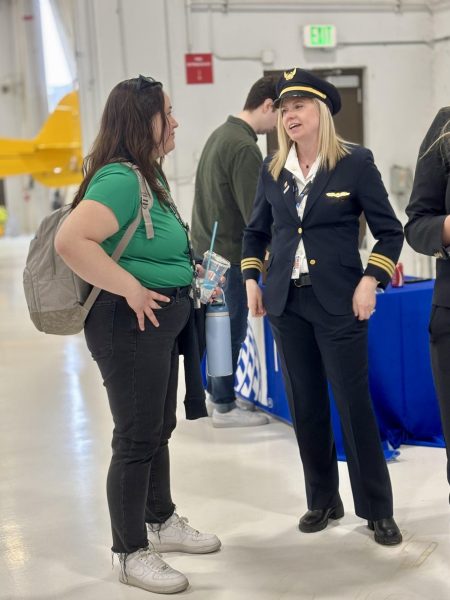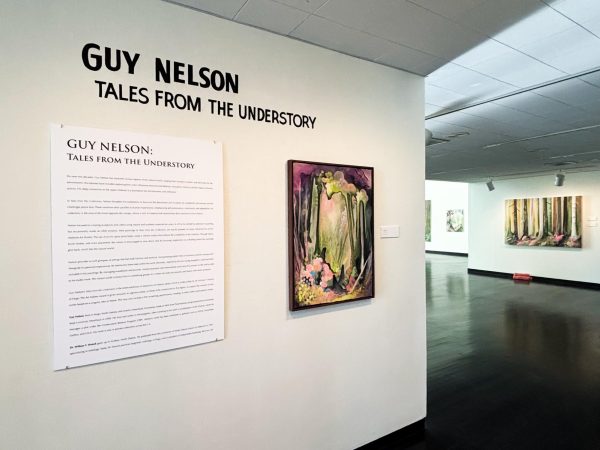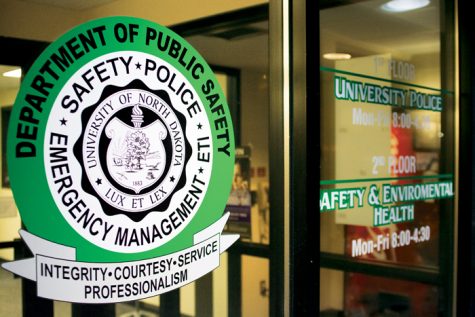‘Collaboration is the Grand Forks calling card’
No other mayor can say they have had a speech dropped off via drone, but that’s exactly what happened to begin Mayor Mike Brown’s State of the City speech last week. The use of the drone was a nod to the growing unmanned aerial vehicle industry in Grand Forks.
UND’s role in the Grand Forks community was brought up several times throughout the speech, including the state funding for UND’s medical school, law school and Collaborative Energy Complex.
Brown acknowledged the large role UND plays in the Grand Forks community and expressed gratitude towards the work of Interim President Ed Schafer at the university.
“This is an exciting time ripe with opportunity, and we are pleased to see our president taking on this challenge to craft a strategy of long term success,” Brown said. “It’s been a pleasure working with secretary, governor and president Ed Schafer.”
Brown thanked Schafer for the role he played in helping the city as governor during the devastating flood in 1997. Schafer deployed the National Guard to Grand Forks, who along with Air Force personnel and other community organizations, attempted to hold back the rising waters of the Red River.
When discussing efforts involving public health and work on providing social detox through various community partnerships, Brown noted that “collaboration is the Grand Forks calling card.” This phrase summed up many of the tenets of Brown’s speech.
Brown touted public-private partnerships that have made projects like the Grand Sky industrial park possible. The UAS industry is an example of how the North Dakota economy can diversify, according to Brown. Halfway through the speech, a video was played that featured Gov. Jack Dalrymple and members of North Dakota’s congressional delegation talking about the work that Grand Forks has done not only to become a hub for UAS, but also the efforts made to improve the quality of life.
“We will continue to work with our federal and state partners for resource assistance, but also let’s be clear that our future is tended to best when we tend to it ourselves,” Brown said in his speech.
Brown said that the residential tax rate is 1.29 percent, down 2.07 percent from 10 years ago. Brown also highlighted savings made by the city in flood insurance and the text-to-911 system, along with the streamlining of the city government over the last several years.
“Efficiency also takes the form of new internal systems restructuring departments, multidepartment
collaboration, combined labs and the use of the newest technology,” Brown said, describing a “culture of efficiency” within city government.
Brown talked about his efforts to increase public infrastructure over the next several years, and he spoke about how the city would implement a sales tax to pay for the investment. The amount and duration of the sales tax has not yet been finalized or voted on. Brown mentioned the construction of a new library as part of the city’s drive to improve public
infrastructure.
John Marshall, a retired attorney and businessman, was awarded the first ever Grand Forks Lifetime Recognition Award by Mayor Brown for the work he has down in the community and to keep the Grand Forks Air Force base open.
Brown has been mayor of Grand Forks since 2000, and he is up for re-election in June. He is currently a obstetrician and gynecologist at Altru, and he served in the Air Force prior to going to medical school. City Council member Terry Bjerke has announced that he will run against Brown.
Sean Cleary is the editor-in-chief for The Dakota Student. He can be reached at sean.d.cleary@und.edu







